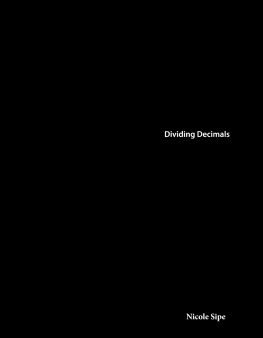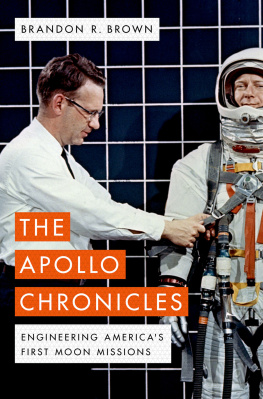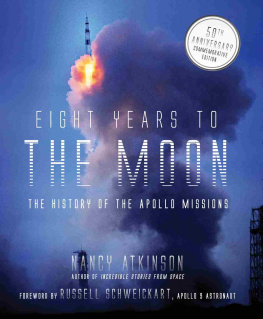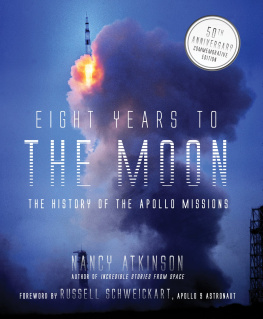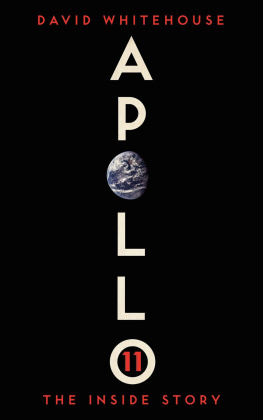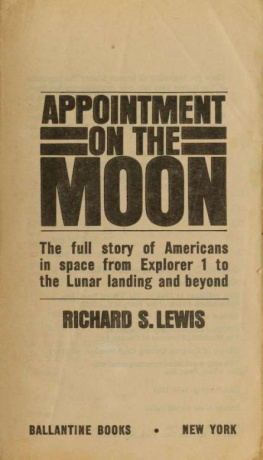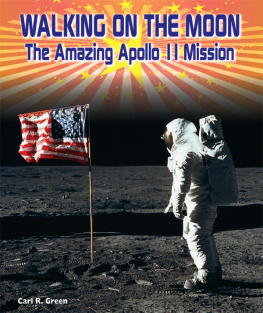
Scavengers of Beauty
A personal, cultural and symbolic exploration of the Moon landing

First published by O-Books, 2020
O-Books is an imprint of John Hunt Publishing Ltd., 3 East St., Alresford,
Hampshire SO24 9EE, UK
www.johnhuntpublishing.com
www.o-books.com
For distributor details and how to order please visit the Ordering section on our website.
Philippe Sibaud 2019
ISBN: 978 1 78904 474 4
978 1 78904 475 1 (ebook)
Library of Congress Control Number: 2019949610
All rights reserved. Except for brief quotations in critical articles or reviews, no part of this book may be reproduced in any manner without prior written permission from the publishers.
The rights of Philippe Sibaud as author have been asserted in accordance with the Copyright, Designs and Patents Act 1988.
A CIP catalogue record for this book is available from the British Library.
Design: Stuart Davies
UK: Printed and bound by CPI Group (UK) Ltd, Croydon, CR0 4YY
US: Printed and bound by Thomson-Shore, 7300 West Joy Road, Dexter, MI 48130
We operate a distinctive and ethical publishing philosophy in all areas of our business, from our global network of authors to production and worldwide distribution.
Contents
Guide
Other books by the author
Poetry (in French)
Petale dorage (1999) Librairie-Galerie Racine, Paris
ISBN 2-243-03895-1
Tant pis pour le diable (2007) Librairie-Galerie Racine, Paris
ISBN 2-243-04318-1
Dialogue avec lours (2010) Editions Baudelaire, Lyon
ISBN 978-2-35508-409-6
Les Crates (2013) Editions Baudelaire, Lyon
ISBN 979-10-203-0256-4
Fiction (in French)
Cannibalisme dautomne (2014) Editions Baudelaire, Lyon
ISBN 979-10-203-0433-9
To and For Gaia
When youve cooked the marrow of the Sun and Moon,
The pearl is so bright you dont worry about poverty
Sun Bu-e
Part 1
I
I reached Gare du Nord, Paris, in the dying light of a cool October day and jumped in a taxi to take me to the hotel. The year was 2006 and I was 42. The driver was Moroccan and very chatty. Once the usual niceties had been exchanged, however, the conversation took an unexpected turn. He was a sort of diviner, he told me, had a gift which sadly he was not using much, except when he was back home. I thought the whole thing was a bit unusual. A taxi driver pouring out very personal, and quite sensitive, material to a complete stranger? After all, diviners are not held in much esteem in our rational, no-nonsense world, and often get a frosty reception, to say the least. But I was lending him a sympathetic ear even though at the time I could in no way count myself as a diviner. Suddenly he stopped talking. A big black car Mercedes type, I reckon had overtaken us and I immediately noticed its somewhat odd licence plate a triple 7 with some letters either side of it. Definitely not French registered. A diplomatic plate maybe? But I was not the only one to notice it. Oh, Monsieur!! he said. Look at this car! I do not know why you are in Paris but you will go through great hardship! A flash of inspiration, a sudden intuitive insight triggered by the sight of a car. This had escaped his lips before he had had time to think about it. He quickly realized his blunder. Diviner he may have been, but I sure had not asked him for his services. But it will end up alright, he added. And I could not tell whether he had said it to make amends and comfort me or whether he had truly meant it.
II
This was my third day in police custody and I was mulling over the whole episode. I had come to Paris from London to be interrogated as a witness for a matter relating to my job as an oil trader with my former company, which I had left five years before. I thought it would take a few hours, maybe a day. As it turned out I had been placed under interrogation for two full days, spending two nights in jail. I was then waiting to be presented to the investigating magistrate for further grilling. The previous night had been difficult. I had spent it in a small smelly cell, crude lights relentlessly glaring all night long, shivering body with no blankets to hide under, and the wardens coming up every hour and playing with their keys in the door so as to disrupt the little sleep I could get. Kudos to the taxi driver, he had hit the nail right on the head. I could only hope that his parting words would prove as prophetic.
It was late in the day by now, a day I had spent in a glass cage waiting for the judge to audition me. Softening the meat, they call it. I was crushed, dirty, dishevelled, humiliated, ashamed, desperate.
Suddenly I knew exactly what I had to do.
III
Fifty years ago, on 21 July 1969, a 5-year-old boy was stirred from his sleep by his parents to watch on a tiny black-and-white screen the blurred image of a man in white wearing a big helmet and awkwardly walking on dust. I have very faint memories of these images on the screen but the palpable sense of excitement that was then pervading the room has stayed with me ever since. Philippe, said my father, we are walking on the Moon!
IV
Thirty-seven years separate these two events but as has become increasingly clear for me I cannot but see a striking parallel between them.
This is, however, only one part of the story, albeit the most dramatic one. Symbolically, I can see the whole narrative of my life shadowing the story of the Apollo mission. A kind of mythical resonance, reaching down to the same archetype. This figurative take, of course, is highly personal. It does not have any objectivity. It is not true and yet it is for me. And so, while I am mainly concerned in this book with the symbolism of the Moon landing, I will also explore this symmetrical unfolding, this twin pattern echoing through time and space.
What I am offering is not an academic work yet it draws on numerous academic sources. It is not poetry yet it is poetic. Nor is it a novel, even though it tells a story. Precariously it tries to tread the fine line between personal and collective, objective and subjective, literal and symbolic, astronomical and astrological, ultimately striving to reach the ambitious goal of reconciling the opposites, celebrating the union of masculine and feminine in the hieros gamos of the alchemists, Sol y Luna the Sun and the Moon. In many respects this work is then nothing but a hybrid animal, a three-headed chimera, raging fire and moonlight dew, a Gorgonesque painting splattered with sacrificial blood, sound of blaring trumpets dipped in acid, smell of yellow fumes exhaled by dying panthers.
This book does not try to demonstrate anything, nor to prove a point. No Truth is to be found here. Or, if there ever was, it has long since splintered into the thousand eyes of a hallucinating spider. It is no reductionist postmodern flatland either. All it asks of the reader is a pinch of salt, ideally of the Himalayan pink variety: open-mindedness and an acknowledgement of the Mystery whatever that means. And a willingness to hold paradox. Especially a willingness to hold paradox. A thistle is a bearded old man is a thistle. It will appeal to those who are not desperately searching for answers but who want the freedom to ask questions. To those who acknowledge the broken light leaking from Holy Scripture. Who can soar with the eagle and dig with the mole. Who can find Hope in the rotting flesh of a carcass, and the diamond sutra in a pile of dung.
Next page

